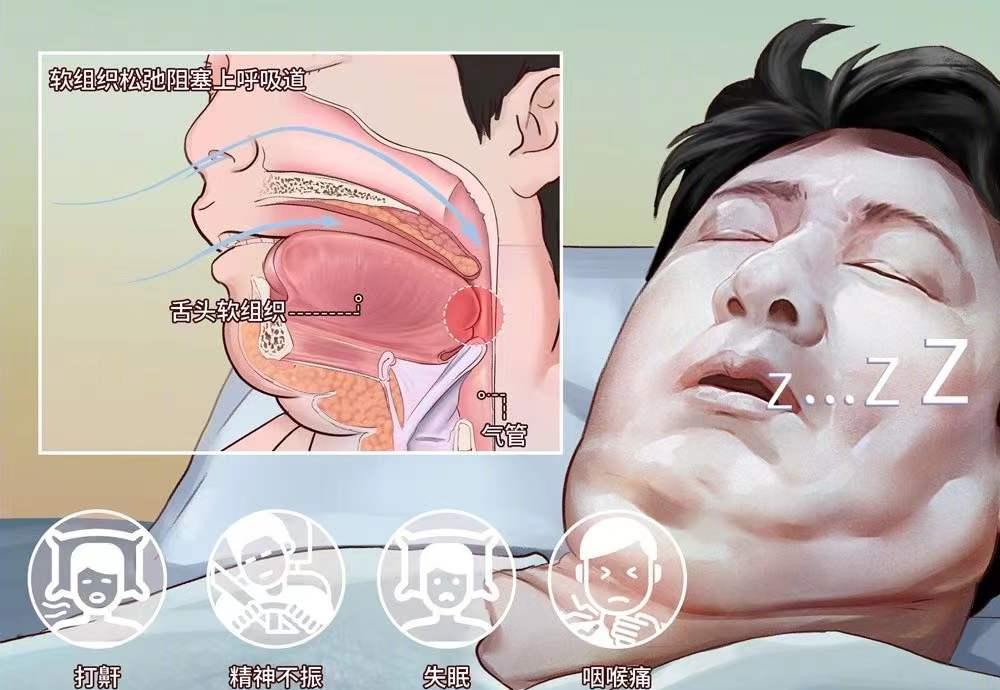Some time ago, Xiao Zhang came to the hospital for drug adjustment because of hypertension. As soon as we met, we found that he was fat, with a short neck, and some chubby double chins. After being hospitalized, the grunting was so loud that the patients in the same room could not sleep, and they did not feel anything at all. The next day, he checked the room and asked about the medical history, and he also admitted that there was a phenomenon of sleeping and snoring so that lovers and children could not sleep. At this point, we clarified that there may be factors in sleep apnea syndrome due to the obvious rise in blood pressure in the morning, so we arranged sleep monitoring, and the results were unsurprising, suggesting moderate obstructive sleep apnea hypopnea syndrome, severe hypoxemia, and it is recommended to do a pressure titration examination to evaluate the parameters required to wear a noninvasive ventilator. The night he wore a ventilator for a pressure titration check, he felt like he had slept soundly, and the next day he woke up refreshed and his blood pressure wasn't as high as before. Xiao Zhang wondered, how can snoring and sleeping soundly have something to do with high blood pressure?

(Source: Tencent Medical Code)
Clinical and research has found that long-term snoring or severe snoring people are often accompanied by sleep apnea syndrome, resulting in less oxygen inhaled overnight than normal people, less oxygen in the blood, dry mouth the next day, yellow phlegm production, easy fatigue and drowsiness during the day, which will affect attention, computing ability, judgment, memory, etc., and will also lead to emotional irritability, irritability, anxiety, depression. Patients with hypertension are prone to a significant increase in blood pressure in the morning, and in severe cases, they may also cause bradyarrhythmias, cardiac arrest and even malignant arrhythmias due to hypoxia and acidosis. Therefore, experts recommend that people who snore should have polysomnography monitoring to determine if there is sleep apnea syndrome. If sleep apnea syndrome is diagnosed, in addition to having the parameters of sleep breathing, it is necessary to visit an OT THROAT department to assess whether sleep apnea syndrome is a respiratory obstruction or a multifaceted factor, and to decide whether to treat it surgically or to wear a noninvasive ventilator.
In this way, Xiao Zhang is because of sleep apnea syndrome, which leads to a decrease in blood oxygen saturation at night, secondary sympathetic hyperactivation, and a significant increase in blood pressure the next morning. After an ENT consultation, he was advised to wear a noninvasive ventilator. After being discharged from the hospital, based on the results of the pressure titration, he purchased a noninvasive ventilator and insisted on wearing it. The outpatient follow-up found that his blood pressure control was very stable, and the mental state of the whole person was significantly improved.